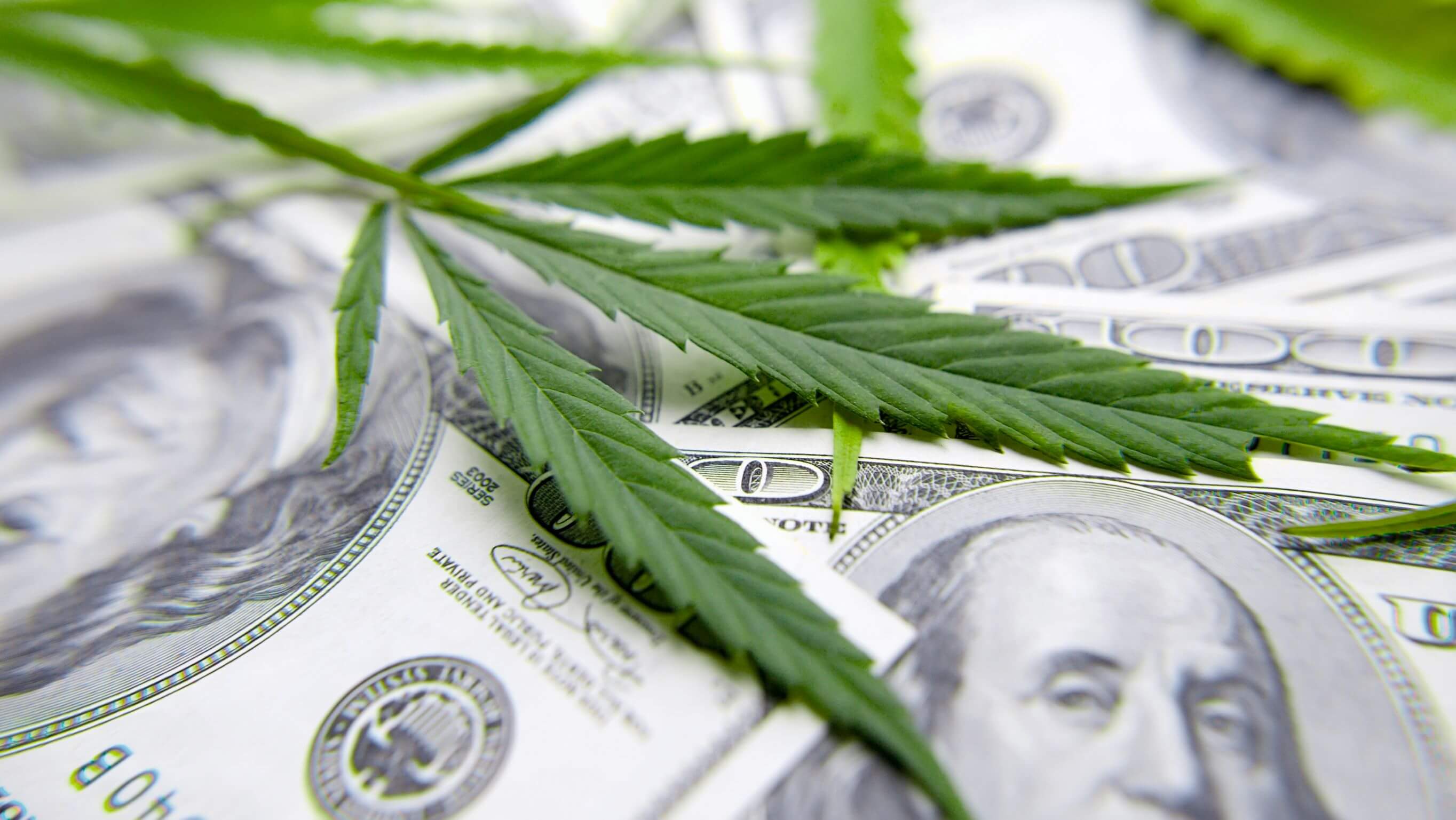Resources
Colorado state tax revenue from the legal cannabis industry surpassed $2 billion in January and the state has collected more than $88.7 million in fees.
In addition to state and local taxes and fees, cannabis businesses have an effective federal tax rate of about 70% – compared to about 26% for other businesses.
Did you know Colorado legal cannabis dispensary owners are unable to deduct normal business expenses like payroll and rent from their federal income taxes?
Marijuana has contributed over $320 Million dollars to Building Excellent Schools Today (B.E.S.T.), making up about 25% of the program's entire budget.
In FY 21-22 alone, nearly $15.3 million in state cannabis dollars went to state Affordable Housing Grant and Loans.
The Marijuana Tax Cash Fund collected $188.8 Million in FY 2021-22 alone.
In FY 21-22 alone, nearly $15 million in cannabis dollars went to the School Health Professional Grant program.
More than $15 million in cannabis dollars went to substance abuse treatment in FY 21-22.
More than $1.6 million cannabis dollars went to the Tony Grampsas Youth Services Program in FY 21-22.
Voters in 59 of 64 Colorado counties voted no on Proposition 119 sending a clear message against raising taxes on cannabis consumers.
Unlike other legalized substances, the marijuana industry has a 97% compliance rate for unauthorized sales.
Unlike alcohol, research has proven you can only get “so high.” Cannabinoid receptors in your brain eventually prevent the body from getting further intoxicated.
Did you know? Since legalization in 2005, teen use in Colorado has remained flat and is below the national average.
According to a recent poll by the Pew Research Center, more than 90% of Americans think cannabis use should be legal.
Did you know? MIG represents more than 400 cannabis business licenses across the state.
A 2021 study found that medical cannabis use was associated with clinical improvements in pain, function, and quality of life with reductions in prescription drug use.
Founded in 2010, MIG is the oldest and largest trade association for licensed cannabis businesses.
Colorado’s marijuana model has become the example for all other regulated cannabis states, and MIG works directly with policy makers to ensure that Colorado’s program is fair, tightly regulated, safe, and successful.
Safe Sales: Every marijuana sale in CO takes place on camera and requires multiple ID checks.
All regulated marijuana in Colorado is tracked from “seed to sale,” with oversight from the Marijuana Enforcement Division.
Established in 2010, MIG has led legislation for child resistant packaging, customer safety resources, and purchase restrictions for 18-20 year olds.
Marijuana is taxed at both state and local levels. This year Aurora built a new $34 Million dollar rec center, fully funded by local marijuana taxes.
The marijuana industry suffers from unfair Federal tax rules, which means that MIG members’ effective tax rates are around 71%.
A 2019 study showed that crime does not increase with legalization.
Conditions for medical marijuana
Cancer - Glaucoma - HIV or AIDS - Cachexia - Persistent muscle spasms - Seizures - Severe nausea - Any condition for which a physician could prescribe an opioid - Autism Spectrum Disorder - Severe pain - PTSD
Most marijuana businesses have access to banks, but because marijuana is still federally illegal, businesses are unable to access merchant processing services such as VISA or Mastercard.
Consuming higher potency marijuana does not lead to higher levels of impairment.
-- Journal of the American Medical Association (JAMA) 2020
71% of Colorado voters favor marijuana legalization. This has increased 10 points in the last four years alone.
Colorado’s cannabis industry prepares for tough times as U.S. recession looms
MIG In The News
Colorado’s cannabis industry prepares for tough times as U.S. recession looms
Less consumer spending means sales are dropping in both the recreational and medical markets
By MEGAN ULU-LANI BOYANTON | mboyanton@denverpost.com | The Denver Post
PUBLISHED: June 28, 2022 at 6:00 a.m. | UPDATED: June 28, 2022 at 8:04 a.m.
Colorado’s cannabis industry is preparing for tough times as marijuana sales drop and economic problems pile up.
During the COVID-19 pandemic lockdowns, weed businesses serviced consumers eager to stock up on their favorite edibles, concentrates and pre-rolls. That high has since given way to a low for the industry, as less consumer spending means sales are falling in both the recreational and medical markets, according to Headset, which provides insights into cannabis consumer trends.
In Colorado, total sales for marijuana stood at $153 million in April – a 26% decrease compared to about $206 million sold that month last year, according to the Marijuana Industry Group, the trade association for the state’s cannabis industry. Medical sales specifically took a hit, plunging to about $20 million in April from almost $40 million last April.
On top of that, the cannabis industry has to contend with the looming U.S. recession, hurdles around profitability, supply-chain problems and weakening flower prices. And the downward spiral isn’t restricted to Colorado businesses — it’s a nationwide challenge, said Aaron Smith, CEO of the National Cannabis Industry Association.
“Obviously, the inflation factor is happening everywhere,” he said, pointing to some cannabis users who are “probably cutting down on consumption because they’re having a hard time making ends meet or paying their bills.”
“That’s a problem that’s much deeper than cannabis,” Smith added. However, he sees a silver lining in the situation: the industry’s longevity.
“I don’t have a crystal ball,” he said, but “I don’t see the legal cannabis market going away by any means.”
This year, the U.S. cannabis market is worth more than $30 billion, and the cannabis tourism industry is valued at around $17 billion, Headset reported. In Colorado, median store sales amount to about $2 million, with Millennial men counting as the state’s biggest spenders on cannabis.
However, Marijuana Industry Group’s Truman Bradley said he’s seeing “an industry on the edge,” with regulations and taxes hurting the state’s marijuana businesses.
“Our industry is subject to more than a 70% effective tax rate, and no other industry faces that,” he said.
Bradley highlighted House Bill 1317, which imposed more requirements on medical marijuana patients and curbed the amount of concentrate that a patient can buy in one day to eight grams. For 18- to 20-year-olds, the limit became two grams.
Alec Garnett, the Colorado House of Representatives’ Speaker and the bill’s main architect, defended it, saying it aimed to reduce the amount of high-potency concentrate that’s showing up on high school campuses.
“Over 85% of the legislature voted in support of the legislation,” Garnett said. “A lot of other states are looking to what we did to make sure young people with a developing brain don’t have unfettered access to high-potency products.”
For Bradley, there could be more changes on the horizon. He pointed to a potential ballot measure aiming to hike total taxes on recreational weed sales up to more than 30% in Denver. “My members are deeply concerned,” he said. “We’re staring down the barrel of real layoffs and closing doors.”
Buddy Boy Brands’ seven metro-area dispensaries shuttered their doors permanently this month, with owner John Fritzel owing “a tax balance” and blaming a market downturn.
Paul Seaborn, assistant professor at the University of Virginia, said the squeeze on Colorado’s industry and other states with mature cannabis markets is because of a combination of factors, including sales leveling out after the COVID-19 spike, sliding prices, increased competition for customers and lower rates of cannabis tourism.
Liz Zukowski, policy and public affairs manager at Native Roots Cannabis Co., said her company “is not immune” to the macroeconomic forces impacting the industry, but the team is leaning into its strengths, such as its vertical integration in handling everything from production to sales, to combat those factors.
Native Roots started in 2010 as a medical cultivator and extractor in Boulder. Now, it includes 20 retail locations statewide and two Denver production facilities, with almost 500 employees.
Zukowski highlighted an industry trend that she considers problematic in the long run. “Dispensaries are trying to compete with each other, and they’re racing to the bottom to discount products, so that people are continuing to purchase,” she said in a telephone interview.
She’s also noticed fewer medical patients walking through the doors of Native Roots, crediting that to House Bill 1317.
“This industry is not flushed with cash. We do operate on cash, but our margins are so razor-thin,” she said. “There isn’t a whole lot of extra money to get thrown around,” so policy changes result in a rippling effect on businesses.
On the other hand, Green Dragon, which was founded in Colorado in 2012, has “not seen much of a change to our sales,” said cofounder Alex Levine, although he acknowledged that the industry as a whole seems to be experiencing a downward trend.
Green Dragon consists of 16 Colorado locations and seven Florida locations, with plans to rapidly expand in the latter. Across both states, the company employs more than 300 people.
“Consumers across the board are cutting back on retail spending due to inflationary pressures and reduced disposal income,” said Levine in an emailed statement. “However, we are offering everyday low prices and enticing promotions that continue to draw customers in.”
He anticipates a boost in sales in the future.
Additional Info
Source : https://www.denverpost.com/2022/06/28/colorados-cannabis-marijuana-sales-drop-recession/








